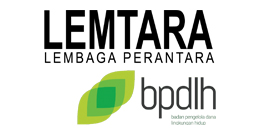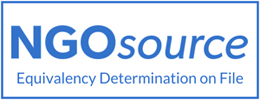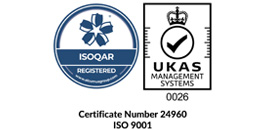Funded by
Oxfam Novib
Document
DSH (24-0000603)
Budget
767,850 EUR
Period
July 01, 2024 – September 30, 2027
Description
Humanitarian crises in Indonesia are predominantly caused by natural disasters, with forest and land fires being the most frequent in 2023[1], albeit with minimal casualties[2]. The response to such disasters often lacks integration with the national coordination mechanism, leading to insufficient resource mobilization and collection. At both national and subnational levels, local nongovernmental actors are underrepresented in various coordination mechanisms, such as the HCT[3], National DM Clusters[4], and the National Coordination Meeting for DM. Despite the existence of coordination mechanisms like Provincial, Regency, and City Level DRR Forums[5], they are not utilized effectively. Local actors should be critical partners of the government, rather than mere implementers of government programs.
Local actors face challenges in resource collection and mobilization, often needing to meet international standards to access global support. Strengthening the institutional and individual capacities of local actors through collaboration with national and international actors, as well as among local actors themselves, is crucial. National actors can play an intermediary role, influencing the dynamics between donors, international actors, and local actors. Local and national humanitarian actors in Indonesia envision the transformation towards a sustainable humanitarian system by focusing on the following aspects: 1) Localization of Aid: Where local actors should take the lead in humanitarian responses, with international organizations playing a supporting role; 2) Capacity Building: Emphasizing on the enhancement of the capacity of local actors to manage humanitarian responses effectively; 3) Long-term and Sustainable Funding: The needs for sustainable funding mechanisms that support long-term development goals rather than just immediate disaster response; 4) Incorporation of Local Knowledge and Context: The use of humanitarian strategies that are deeply rooted in local knowledge and culturally relevant practices; 5) Inclusive Humanitarian Action: Ensuring that humanitarian responses are inclusive of all segments of society, especially marginalized groups, is seen as crucial. These efforts are part of a broader global movement towards a more equitable humanitarian system, but challenges remain, particularly in the areas of funding and recognition of local the power of local actors instead of mere decentralization of power from international to local actors.
The government faces a different challenge with overlapping roles between the NDMA[6] and the MOHA[7] in guiding LDMAs[8]. LDMAs, accountable to provincial, regency, or city leaders, must also adhere to NDMA directives. Their functioning is influenced by the political will of local leaders regarding DRR and DM. Some subnational governments include DM in the performance indicators of their leaders, while others do not, resulting in varying levels of urgency.
Oxfam’s long-term commitment to its partners aims to achieve equality by accommodating varying capacities and providing opportunities at both national and international levels. As a pioneer of localization, Oxfam promotes LHL[9] and is a signatory to the C4C[10], GB[11], as well as the P4C[12], all of which advocate for the localization agenda. Oxfam and its partners have significant experience working with LNHAs.[13] To address the identified challenges and opportunities, 3 key strategies will be employed throughout the project:
- Support and Enhance LNHAs in Disaster Management
- Collaborative Research and Risk Management
- Research and Improvement of Financial Governance, Access, and Funding
By implementing these strategies, the project seeks to strengthen the role of LNHAs in Indonesia’s DM landscape, enhance their capacity and resource mobilization, and promote a more localized and effective humanitarian response.
[1] “Bencana Bencana Tahun 2023”
https://bnpb.go.id/infografis/infografis-bencana-tahun-2023
[2] “Statistik Bencana Menurut Jenis”
https://dibi.bnpb.go.id/kbencana2
[3] Humanitarian Country Team
[4] National Disaster Management Clusters
[5] Disaster Risk Reduction Forums
[6] National Disaster Management Agency
[7] Ministry of Home Affairs
[8] Local Disaster Management Agencies
[9] Local Humanitarian Leadership
[10] “Charter for Change Signatories”
https://charter4change.org/signatories/
[11] “Grand Bargain Signatories”
https://interagencystandingcommittee.org/grand-bargain-official-website/grand-bargain-signatories
[12] “Pledge for Change Signatories”
https://pledgeforchange2030.org/signatories/
[13] Local National Humanitarian Actors
Funding
This program supported by Oxfam Novib, program period 01 July 2024 – 30 September 2027, with total funding support of 767,850 EUR




